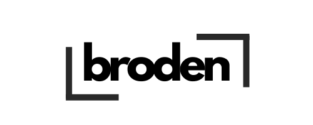Scene Setter
Imagine you are sitting at a round table with your fellow CMOs and Heads of Growth. The conversation revolves around how to scale your marketing efforts in a digital world that is evolving faster than your ability to adapt.
You hear terms like ‘AI’, ‘automation’, ‘data analytics’, and ‘personalisation’ thrown around, but amidst the jargon, one underlying truth emerges: the power of a well-planned AI stack can be your greatest ally in driving growth.
Having built AI-led stacks across various businesses, I’ve seen firsthand how integrating the right tools can lead to phenomenal results.
This isn’t just another marketing gimmick; it’s your pathway to innovative strategies and streamlined processes. So, let’s dive into the essentials of what constitutes a powerful AI stack and how it can catapult your marketing strategies into new heights.
What to Know
An AI stack typically consists of various tools and platforms designed to optimise marketing processes. From content creation to data analysis, each tool serves a specific purpose, collectively forming a robust framework for a modern growth marketer.
Here, we’ll explore some essential tools for your AI stack.
Core Ideas: Tools to Include in Your AI Stack
- Surfer SEO
Content optimisation is vital for improving search rankings. Surfer SEO provides a data-driven approach to enhance your content strategy, allowing you to tailor your messaging to what your audience is actively searching for.
- MarketMuse
As a content strategy platform powered by AI, MarketMuse helps you identify content gaps, create comprehensive briefs, and ultimately achieve SERP dominance. It provides insights that ensure your content not only ranks well but also resonates with your audience.
- Ocoya
Ocoya is designed for social media management, allowing marketers to generate, schedule, and analyse posts efficiently. Its AI-driven capabilities save time while enhancing engagement, making it an indispensable tool for social media strategies.
- ChatGPT (OpenAI)
This versatile tool excels at strategic ideation, content planning, and campaign drafting. Its ability to generate human-like text makes it perfect for brainstorming sessions, outline creation, or even drafting entire articles.
- Smartly.io
For ad creative and automation, Smartly.io simplifies complex ad campaigns across various platforms. Its AI capabilities help optimise ad performance, ensuring your marketing dollars are used effectively.
How It Works: Benefits of Implementing an AI Stack
The integration of an AI stack can fundamentally shift your marketing operations. Here are some key benefits:
- Enhanced Efficiency: By automating repetitive tasks, your team can focus on higher-level strategic initiatives. Less time on mundane processes means more creativity and brainstorming time.
- Data-Driven Insights: AI tools can analyse vast amounts of data, providing you with insights that inform your marketing strategies. Knowledge of what works allows for smarter allocation of resources.
- Personalisation at Scale: AI can help tailor content to individual preferences, creating a personalised experience for each customer. This increases engagement and drives conversions.
- Cost-Effective: While there is an initial investment in AI tools, the long-term efficiencies and increased ROI can make this a savvy financial decision.
- Future-Proofing: As technology advances, integrating an AI stack keeps your marketing strategies relevant. It sets your team up to adapt quickly to future changes in consumer behaviour and market dynamics.
Making It Happen: Real-World Examples
Implementing an AI stack doesn’t have to be daunting. Numerous case studies showcase successful integration:
- Example 1: E-commerce Brand
An emerging e-commerce brand implemented Ocoya for their social media strategy. They noted a 50% increase in engagement within three months, as AI-generated posts resonated well with their target audience.
- Example 2: Logistics Company
A logistics firm utilised Surfer SEO to optimise their blog content. Following a data-driven approach, they improved their organic traffic by over 70% within six months, directly correlating with increased lead generation.
- Example 3: Retail Chain
A large retail chain leveraged Smartly.io for ad automation, resulting in a 30% increase in ad effectiveness due to AI-optimised targeting strategies.
Final Take
The potential of an AI stack extends beyond mere operations; it transforms your entire marketing approach. Investing time and resources in these AI tools can lead to sustainable growth and a competitive advantage.
The landscape of digital marketing is evolving, and with the right AI stack, your team will be at the forefront of this evolution, driving innovation and achieving remarkable results.



